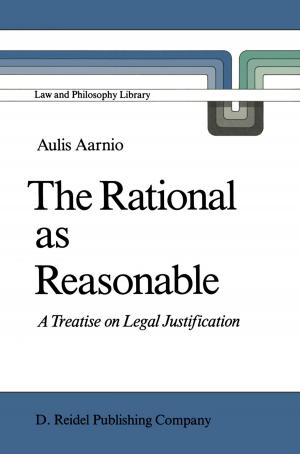Methodology, Metaphysics and the History of Science
In Memory of Benjamin Nelson
Nonfiction, Science & Nature, Science, Other Sciences, Philosophy & Social Aspects, History| Author: | ISBN: | 9789400963313 | |
| Publisher: | Springer Netherlands | Publication: | December 6, 2012 |
| Imprint: | Springer | Language: | English |
| Author: | |
| ISBN: | 9789400963313 |
| Publisher: | Springer Netherlands |
| Publication: | December 6, 2012 |
| Imprint: | Springer |
| Language: | English |
This selection of papers that were presented (or nearly so!) to the Boston Colloquium for the Philosophy of Science during the seventies fairly re presents some of the most disturbing issues of scientific knowledge in these years. To the distant observer, it may seem that the defense of rational standards, objective reference, methodical self-correction, even the distin guishing of the foolish from the sensible and the truth-seeking from the ideological, has nearly collapsed. In fact, the defense may be seen to have shifted; the knowledge business came under scrutiny decades ago and, indeed, from the time of Francis Bacon and even far earlier, the practicality of the discovery of knowledge was either hailed or lamented. So the defense may be founded on the premise that science may yet be liberating. In that case, the analysis of philosophical issues expands to embrace issues of social interest and social function, of instrumentality and arbitrary perspective, of biological constraints (upon knowledge as well as upon the species-wide behavior of human beings in other relationships too), of distortions due to explanatory metaphors and imposed categories, and of radical comparisons among the perspectives of different civilizations. Some of our contributors are frankly programmatic, showing how problems must be formulated afresh, how evasions must be identified and omissions rectified, but they do not reach their own completion.
This selection of papers that were presented (or nearly so!) to the Boston Colloquium for the Philosophy of Science during the seventies fairly re presents some of the most disturbing issues of scientific knowledge in these years. To the distant observer, it may seem that the defense of rational standards, objective reference, methodical self-correction, even the distin guishing of the foolish from the sensible and the truth-seeking from the ideological, has nearly collapsed. In fact, the defense may be seen to have shifted; the knowledge business came under scrutiny decades ago and, indeed, from the time of Francis Bacon and even far earlier, the practicality of the discovery of knowledge was either hailed or lamented. So the defense may be founded on the premise that science may yet be liberating. In that case, the analysis of philosophical issues expands to embrace issues of social interest and social function, of instrumentality and arbitrary perspective, of biological constraints (upon knowledge as well as upon the species-wide behavior of human beings in other relationships too), of distortions due to explanatory metaphors and imposed categories, and of radical comparisons among the perspectives of different civilizations. Some of our contributors are frankly programmatic, showing how problems must be formulated afresh, how evasions must be identified and omissions rectified, but they do not reach their own completion.















